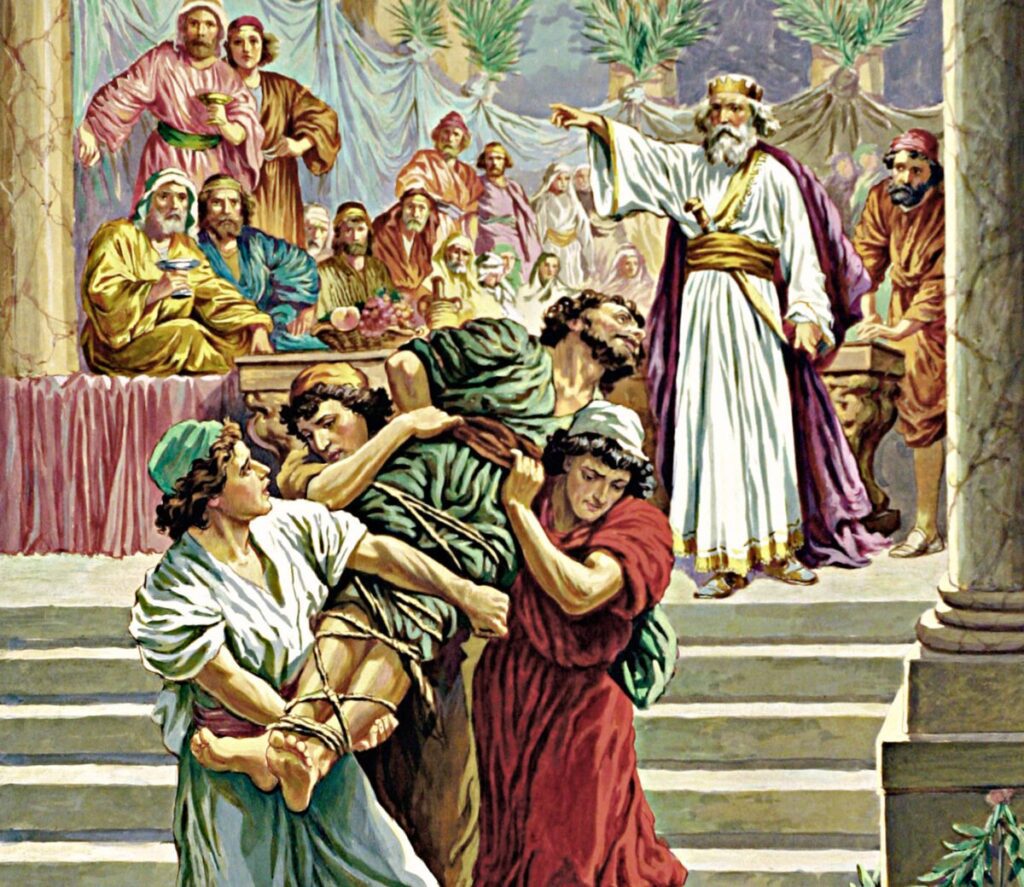
In June of 1997, I had the joy of receiving the habit of Miles Christi. I had joined the Order in 1994. Acquiring the habit was the culmination of many years of intense preparation.
I still remember taking off the civilian coat and putting on the cassock for the first time. What a joy! For several weeks afterward, I had a sense of great accomplishment. I was as proud wearing my habit as someone wearing a Superbowl ring!
For me, the habit is an expression of my identity as a soldier of Christ and a brother of the Miles Christi Community. It manifests my belonging to Christ, the Catholic Church, and the Order.
People’s dress is loaded with a long symbolism in antiquity and the Old Testament. The dress was like a part of the person. In those times, few could afford a wardrobe like some people do today and wear a different suit or dress every day, even several, for different occasions.
Most people had one for every day and another, clean and more decorated, for holidays or great occasions. And they lasted, for the non-rich, through patching, their entire lives. They were already like part of the person.
So much so that when Elijah takes off his mantle before disappearing from this world and hands it over to Elisha, it is as if he handed over his powers and the continuation of his mission. In the wedding ceremony, the Jew covers his bride’s shoulder with his tunic to signify that they become one person, one flesh.
In the Catholic liturgy of Baptism, the baptized person puts on white clothes. The priest cannot celebrate mass in civilian clothes; the nun leaves her old life in her everyday street clothes and puts on a habit.
“But, in addition to being a sign of the person, clothing is a sign of protection and reserve. It is protection against the elements without a doubt, but also against the gaze of others. It is well known that law enforcement in some countries to humiliate prisoners and destroy their morale, interrogate them naked. Who hasn’t ever had those nightmares where, suddenly, being among ordinary people or on the street, he suddenly realizes that he is naked?
Before God, as a result of sin, Adam and Eve felt naked for the first time and hid behind the trees. “I was afraid because I was naked,” they tell him. They realize, now, that something is missing in the face of divine majesty. They have lost grace, that kind of dress that makes the familiar and confident approach to the transcendent God possible.
But God does not dismiss man and woman from paradisiacal innocence without first clothing them with skin tunics, not yet strictly a dress. This covering does not eliminate helplessness, but it is a sign that man is called to a dignity he now lacks.
From then on, all Scripture points to grace, to what Christ obtains for us and gives us by infusing us with his Spirit, allowing us to find the true dignity of man before God, clothing him with the garment of baptismal grace.
“Put off the old man and put on Christ,” says Saint Paul.
God invites us to his banquet. Be careful that pride, the worries of this perishable life, love of money, Netflix, Ticktock, or anything else makes us postpone or reject the invitation. Don’t let it be too late and the doors close.
Let’s always have our wedding garment on, the garment of God’s grace, of his love.

